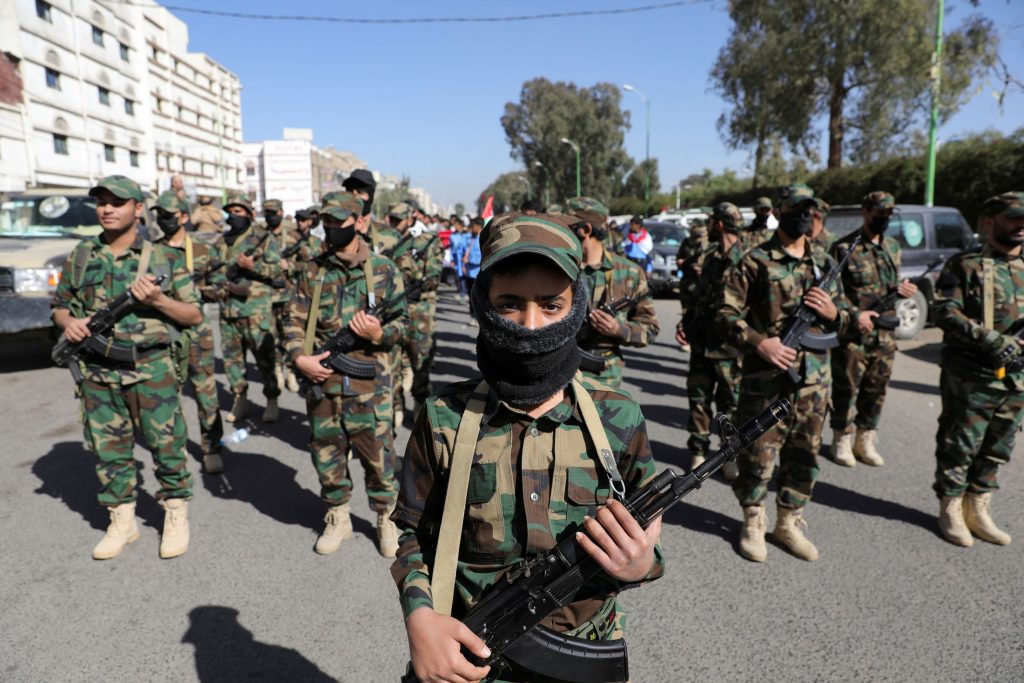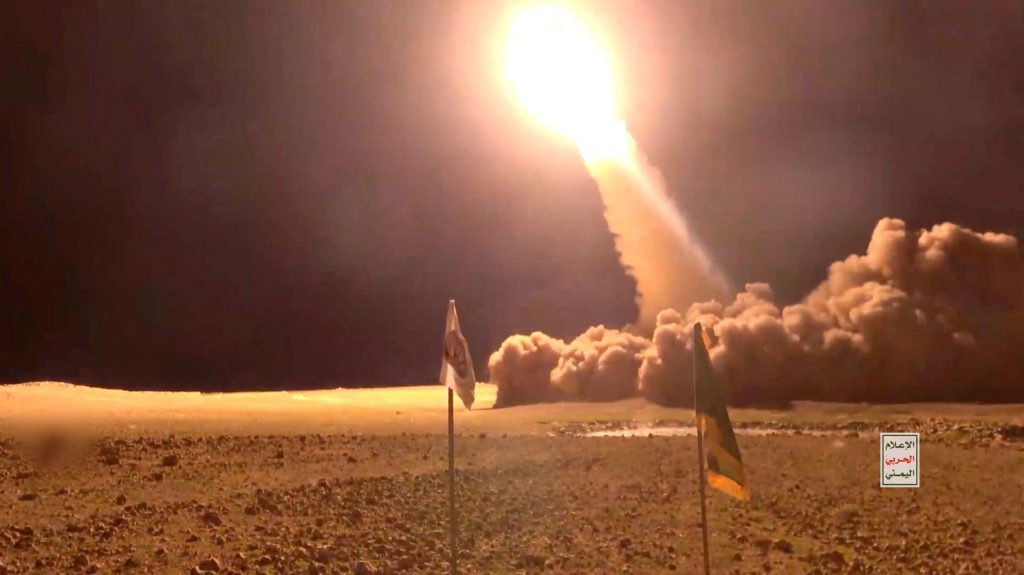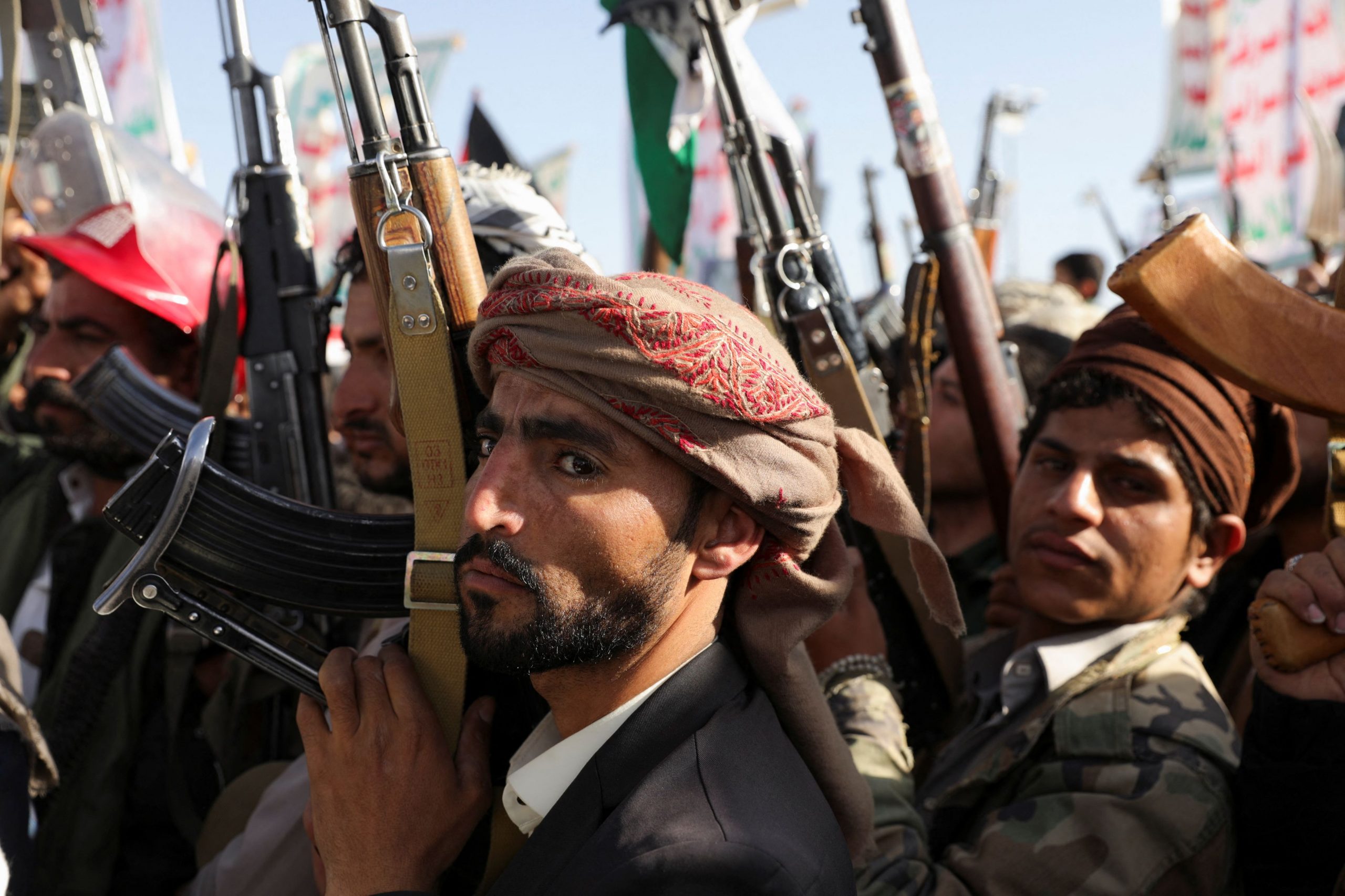TEL AVIV—Over the past year, Israel’s military has proved adept at taking down threats to the country’s security. After the initial shock of the Oct. 7, 2023, attacks , Hamas’s top leadership has been largely neutralized. Iran’s other big ally in the region, Hezbollah, was set back severely in Lebanon.
Now Israel is setting its sights on the Houthi rebel group in Yemen, who represent a lingering problem, regularly firing missiles at Israel—and it is a problem with few clear ways to handle .
So far, Israel has targeted what it says is energy and transportation infrastructure the Houthis use for military purposes. The next step is to hit the group’s top leaders, much as its security forces did with Hamas and Hezbollah.
“We will hunt down all of the Houthis’ leaders, and we will strike them just as we have done in other places,” said Israeli Defense Minister Israel Katz in late December, following Israel’s fourth round of airstrikes against the Houthis since July.
The Houthis, however, present a unique security challenge for Israel because of how distant they are from Israel, a lack of intelligence on the group and the fact that retaliatory airstrikes seem to only inflate domestic support for the group while doing little to stem attacks. A U.S.-led coalition also has failed to clamp down on Houthi provocations against global maritime shipping. Yemen is already one of the world’s poorest countries, and nearly a decade of warfare with a Saudi Arabian-led coalition has done little to deter the group.
Indeed, since Israel secured a cease-fire with Lebanon’s Hezbollah in late November, the Houthis have become the primary security challenge for Israel in its 15-month-long confrontation with Iranian proxy groups that began after Hamas’s Oct. 7 attacks. In the past weeks, the Houthis have kept a steady stream of near-daily missile attacks on Israel.

Houthi military spokesman, Yahya Sarea, delivers a statement claiming attacks on Israel, during a rally by protesters, mainly Houthi supporters, to show support to Palestinians in the Gaza Strip, in Sanaa, Yemen December 20, 2024. REUTERS/Khaled Abdullah TPX IMAGES OF THE DAY
Israel’s government is under increasing pressure to respond. The Houthi attacks frequently send millions of people running to bomb shelters in the early hours and disrupted the return of international airlines that ceased flying to Israel for much of the current war.
But with no clear way to deter Houthi attacks in the short term, some security specialists argue that Israel should ignore the Houthis for now and instead focus on their patron, Israel’s long-term strategic threat: Iran.
“Against terror from Yemen, our solution lies in Tehran,” said Benny Gantz , a former senior official in the current Israeli government, a former defense minister and now a leading opposition figure, in a press conference at the end of December.
Gantz argued that while Israel would be fighting Iran’s allies for years to come, the country now has an opportunity for a “strategic flip” against Iran by fighting it directly.
Corners of the country who argue that Israel should hit Iran say that while it might not fully stop Houthi attacks, it will weaken the group and advance Israel’s long-term strategic goal of preventing Iran from weaponizing its nuclear program .
In addition, Iran is uniquely vulnerable at present, said Yoel Guzansky , a former Gulf expert for Israel’s National Security Council and now at the Tel Aviv-based Institute for National Security Studies.
The proxy groups Iran seeded around the region to deter attacks from Israel have largely been subdued, while Iran’s air defenses were hobbled by Israeli airstrikes in October. Israel should take advantage of this window before Iran and its allies can regain their strength, Guzansky said.
And if Iran retaliates, it would provide cover for Israel to again strike Iran, and potentially its nuclear sites, security analysts say.
Israel’s military, after its most recent strikes in Yemen in late December, called the Houthis an “autonomous terrorist group” that relies on Iranian cooperation and funding to carry out attacks.

Houthi fighters take part in a parade for people who attended Houthi military training as part of a mobilization campaign, in Sanaa, Yemen December 18, 2024. REUTERS/Khaled Abdullah
Israel’s best option for a long-term solution to the problem posed by the Houthis might be to focus on building a U.S.-led regional coalition with Gulf countries also threatened by the Houthis’ growing aggression, including Saudi Arabia and the United Arab Emirates, some analysts say. This could require Israel to make difficult compromises with the Palestinians. But acting alone with the Houthis, who have snarled international trade by attacking ships in the Red Sea, Israel risks turning an international problem into its sole responsibility, said Alon Pinkas , a former senior Israeli diplomat.
“Israel is Israelizing the problem,” he said.
The reality is that plenty of other governments are seeking to remove the Houthi leadership from its strongholds overlooking the Red Sea shipping lanes. Saudi Arabia would like to see them gone, and officials from Yemen’s internationally recognized government, which controls most of the country’s territory, have also recently called on a U.S.-led coalition that has also been targeting the rebel group to kill its leadership. Egypt too has taken a significant economic blow thanks to sagging trade through the Red Sea.
The Houthis only control a small, but populous, part of Yemen in the country’s northwest. The group’s leadership is already concerned about Israeli threats and has taken precautions such as building underground command complexes, avoiding cellphones and changing its hide-outs and movements, according to a person familiar with the Houthis’ thinking.
In some ways the debate over what to do about the Houthis reprises earlier debates on whether to hit Iran directly or tackle its proxies, groups such as Hamas and Hezbollah. Israel ultimately elected to subdue those groups independently and avoid a larger confrontation with Iran. Yuli Edelstein , chairman of the Israeli parliament’s foreign and defense affairs committee, said in an interview that the country is moving toward a similar approach to the Houthis.
“Everyone understands that if we go after Iran it will weaken the Houthis, but they won’t go away because of it,” he said.
An Israeli official argued that Israel needed to distinguish between the immediate threat posed by the Houthi attacks and the longer-term strategic threat of Iran.
“There’s no connection between the two,” the official said. “It’s a totally different decision.”
Still, there are other considerations. Israeli Prime Minister Benjamin Netanyahu has said preventing Iran from weaponizing its nuclear program is his top priority, as the U.S. intelligence community warned last month that the danger of Iran building a nuclear weapon is rising. Officials from his government said they are optimistic that President-elect Donald Trump would be a willing partner in this effort, although analysts say the incoming administration is likely to exhaust other options before resorting to force.

Footage released by Houthi Military Media says to show a launch of missile, which the Houthis say they fired at Israel, at an unknown location in this screen grab obtained from a handout video released on December 19, 2024. HOUTHI MILITARY MEDIA/via REUTERS
Meanwhile, Israel is trying to deepen its intelligence to be able to hit Houthi leaders, the Israeli official said. And while continued Israeli attacks on the Houthis might not prevent Houthi missile strikes, they do signal to the rest of the region that attempts to hit Israel come at a heavy price, said Avner Golov , a former senior director at Israel’s National Security Council who is now a vice president at MIND Israel, an advisory group.
“It’s important Israel will keep striking often to make sure people understand we won’t live with it,” he said.
Write to Dov Lieber at dov.lieber@wsj.com



